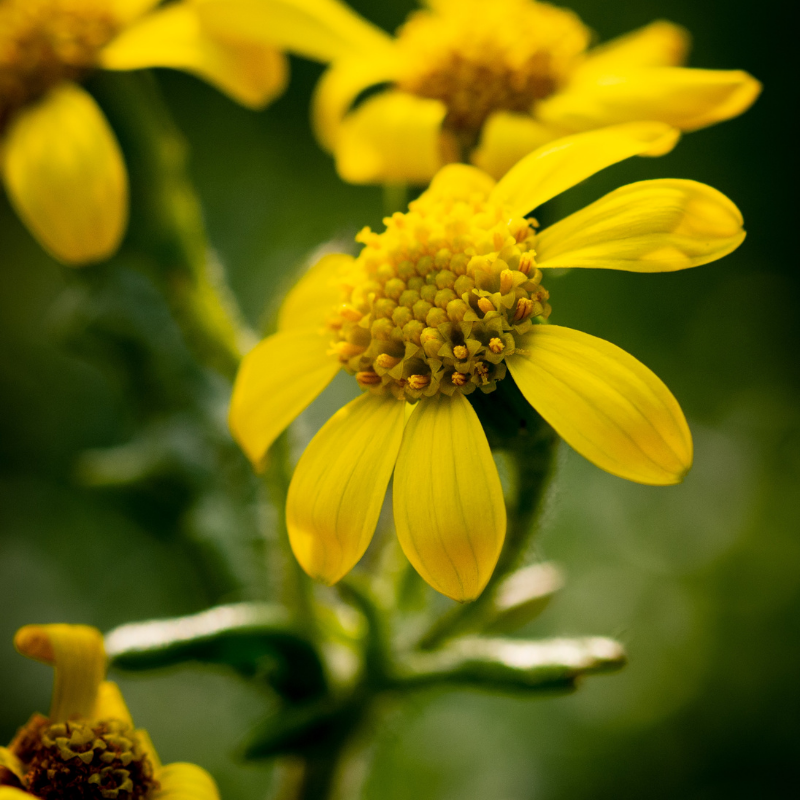
How to alleviate your spring allergies
Spring is here! It’s such a beautiful time of year with blooming flowers and warmer weather, but Spring allergies are arguably the worst. Today we’re talking all things spring allergies (think: environmental triggers, tips to alleviate allergies, and our favorite supplements for relief).
Environmental histamines
Environmental histamines can be a HUGE contributor to your symptoms (hello spring season!). For some of us, our bodies perceive environmental allergies as an invader which causes unpleasant reactions, aka spring allergies. When an allergen enters the body, mast cells work to destroy the allergens, in turn releasing histamines into the bloodstream. This buildup of histamines in the body results in inflammation and a bunch of pestering symptoms.
Symptoms of pollen allergies and histamine buildup:
- Itching
- Hives
- Swelling
- Enlarged blood vessels
- Increased mucus production (runny nose or stuffy nose)
- Red and watery eyes
- Sneezing
- Tightening of muscles that surround the airways causing more labored breathing.
Spring allergies
Springtime is notorious for people suffering from these symptoms due to the sharp rise in pollen from the blooming of a variety of different plants, grasses, trees, and weeds.
Common culprits of pollen:
- Tree pollen – Birch, Cedar, Hickory, Walnut, and Oak (but the list goes on!)
- Grass pollen – Timothy grass, Bermuda grass, and Kentucky Blue Grass
- Weed pollen – Ragweed, Pigweed, Tumbleweed
Aside from pollen, there are other culprits of your allergies. Two that I like to focus on are dust mites and mold.
- Dust mites are tiny organisms that live in dust and in the fibers of household objects like pillows, mattresses, and carpet. They thrive in warm, humid areas.
- Mold is a type of fungus with spores that float in the air like pollen. Mold can be found indoors in dame areas (think: the basement and bathroom) or outdoors in grass, lead piles, hay, mulch, or under mushrooms. They thrive in hot and humid weather.
Note that many of these plants are indigenous to different regions so what’s triggering you may be local to your area! While avoiding all of these sources is unrealistic, it’is good to be aware of your surrounding environment to better understand what’s triggering you.
Lifestyle tips to alleviate allergies
While spring allergies can seem largely unavoidable, there are some lifestyle changes you can make to help reduce your symptoms.
Tips to Alleviate Allergies:
- Keep your windows closed on days that winds are high (this is how pollen gets around!) and when pollen counts are high
- Take your shoes off once you get in the house to avoid dragging allergens throughout the house
- Clean your pups, especially their paws after a walk since they (like your shoes) can drag in a ton of allergens
- Avoid being outside when fertilizers and pesticides are applied to the grounds in your neighborhood
- Keep your body moving! (daily movement and light exercise is helpful in histamine clearance)
- Get an air filter and humidifier (this seriously helps!)
- When doing laundry for sheets and linens, use a hot temperature setting to kill off indoor allergens
- Change and wash your clothes after outdoor activities
Supplements and essential oils to fight allergens
Aside from lifestyle modifications, supplements and essential oils are KEY to fight allergens. Supplements that I love all fall under the category of natural antihistamines, meaning they work to reduce or block histamines’ effects.
Natural Antihistamines:
- Quercetin- helps suppress inflammation by reducing histamines released from mast cells
- Vitamin C – antioxidant and anti-inflammatory properties that help manage histamine intolerance
- DAO – a digestive enzyme that helps breakdown excess histamine in the body
- NAC (N-acetyl cysteine)- helps reduce histamines released from mast cells
- Omega 3 – an essential fatty acid that has major anti-inflammatory effects
- CBD – may help prevent mast cells from releasing histamine into the bloodstream and prevent inflammation
Essential oils have numerous health benefits; one of them includes allergy relief.
Essential oils for allergy relief:
- Lavender essential oil – anti-inflammatory and anti-histamine properties (also helps skin rashes, eczema, and respiratory allergies because of its calming effects)
- Eucalyptus essential oil – helps soothe and ease seasonal allergies and asthma for some
- Lemon essential oil – may help clear congestion in the respiratory tract due to its cooling properties and has anti-histamine and anti-inflammatory properties that help relieve congestion and mucus
The bottom line
Spring is a time to get outside after the long winter, but spring allergens can easily hold you back. Understanding your allergens and how to combat the buildup of histamines in your body is key to alleviating your symptoms. The good news is that there are lifestyle modifications, supplements (hello natural antihistamines), and essential oils you can use to help combat histamines and your symptoms.







